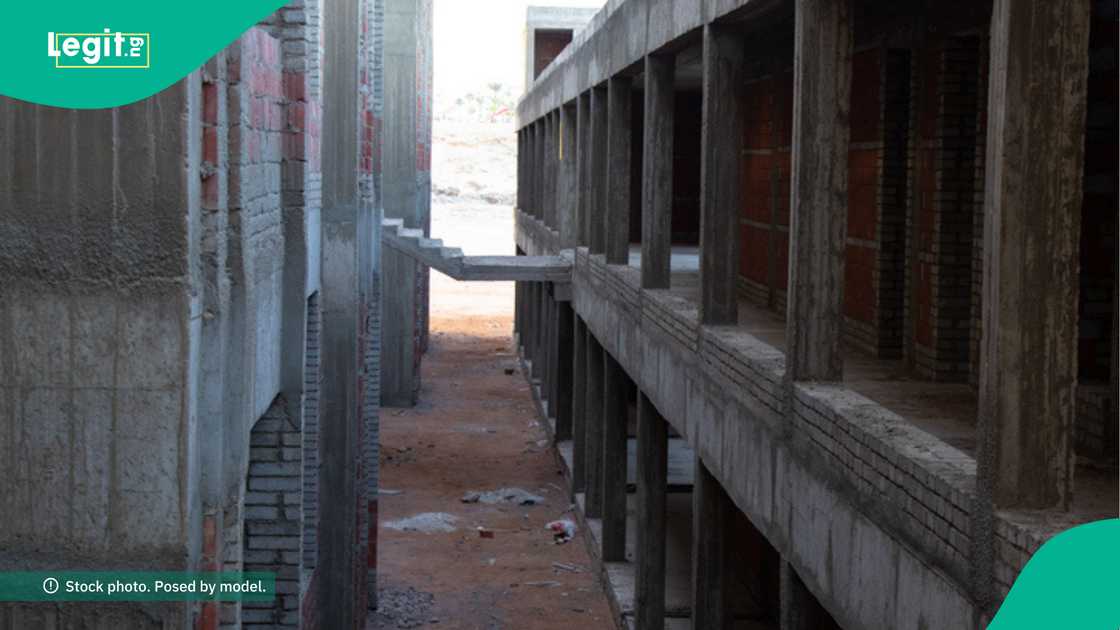Nigeria’s Estate Surveyors Speak Out as FG Plans to Seize Unoccupied Building
- Estate surveyors have strongly opposed the Nigerian government's threat to seize unoccupied properties, calling it illegal and a violation of fundamental property rights.
- The President of the Nigerian Institution of Estate Surveyors and Valuers (NIESV) emphasised that while some individuals use property to conceal illicit wealth.
- He also expressed support for the ongoing tax reforms, which aim to enhance transparency and ensure fair taxation of both occupied and unoccupied properties
Legit.ng journalist Zainab Iwayemi has 5-year-experience covering the Economy, Technology, and Capital Market.
Estate surveyors have vehemently opposed the government's threat to seize unoccupied properties in response to Nigeria's rising housing needs, arguing that it is illegal and a violation of fundamental rights.

Source: UGC
While property ownership is often used to hide illicit money, the Nigerian Institution of Estate Surveyors and Valuers (NIESV) emphasized in a Daily Sun report that any attempt to forcibly confiscate such assets would set a dangerous precedent, undermining due process and property rights.
Instead, Dr. Victor Alonge, the institution's president, stated that there are legal methods to address such actions, as stealing someone else's property would violate their basic human rights. He did, however, acknowledge that some individuals purchase such properties to conceal their illicit wealth.
“You need to understand that there is what we call fundamental human rights. Embedded in that is the right to own and maintain your property as you see fit. If I use my money to buy a property, there is little the government can do. You can’t take it forcefully. I’ve heard some government officials threaten to confiscate any empty property and allocate it to homeless people,” he said.
“In developed countries, we have ways of addressing issues like that. People acquire property here for various reasons. We have heard of people using property as a means of hiding their illicitly acquired wealth. But the key thing is there are laws to address people’s sources of wealth.”
“We don’t want houses to be left empty. But we need to approach this in a more systematic way. In Nigeria, those who own property and leave it unoccupied for a long time have been indulged. They don’t pay taxes on it. Unfortunately, in most of our urban cities, the system has been completely abandoned.”
“In the United Kingdom (UK), for instance, we have an agency called the Financial Office Agency. They collect information on these assets, known as ‘chargeable wealth’ in England. They determine the value of the property and also set its rental value. It is on the rental value that they charge owners.”
“The tax on unoccupied property is actually higher than that on occupied properties,” he said.

Source: Getty Images
According to Alonge, the tax reform measure currently before the National Assembly is beneficial for Nigerians, as it would make tax operations more transparent, despite the criticism and condemnation it has received.
“While the poor will pay less, the rich will pay more. So, the bill is actually a good one. And I strongly believe it will bring a lot of benefits to the less privileged—those with low incomes. The key point is that the bill will encourage transparency."
"So, everyone will be aware of what happens. It will no longer be possible for anyone to hide income. Whether it comes from your direct employment or other sources, it will be difficult to conceal. Until now, we haven’t seen anyone prosecuted for tax evasion, but we will see more of it."
“And it will be very damaging to individuals. You will be forced to comply, and compliance will be much more pronounced.”
FG set to take action against owners of unoccupied buildings
Legit.ng reported that in an attempt to address Nigeria's housing shortage, the federal government has declared plans to levy financial fines on building owners without occupants.
In an exclusive interview with The Nation, Ahmed Musa Dangiwa, Minister of Housing and Urban Development, disclosed that property owners who do not lease or sell their unoccupied buildings may be subject to increased ground rent fees.
To implement this strategy, Dangiwa disclosed that the ministry is now undertaking a statewide census of vacant structures, which the minister stated would be finished shortly.
PAY ATTENTION: Сheck out news that is picked exactly for YOU ➡️ find the “Recommended for you” block on the home page and enjoy!
Source: Legit.ng


